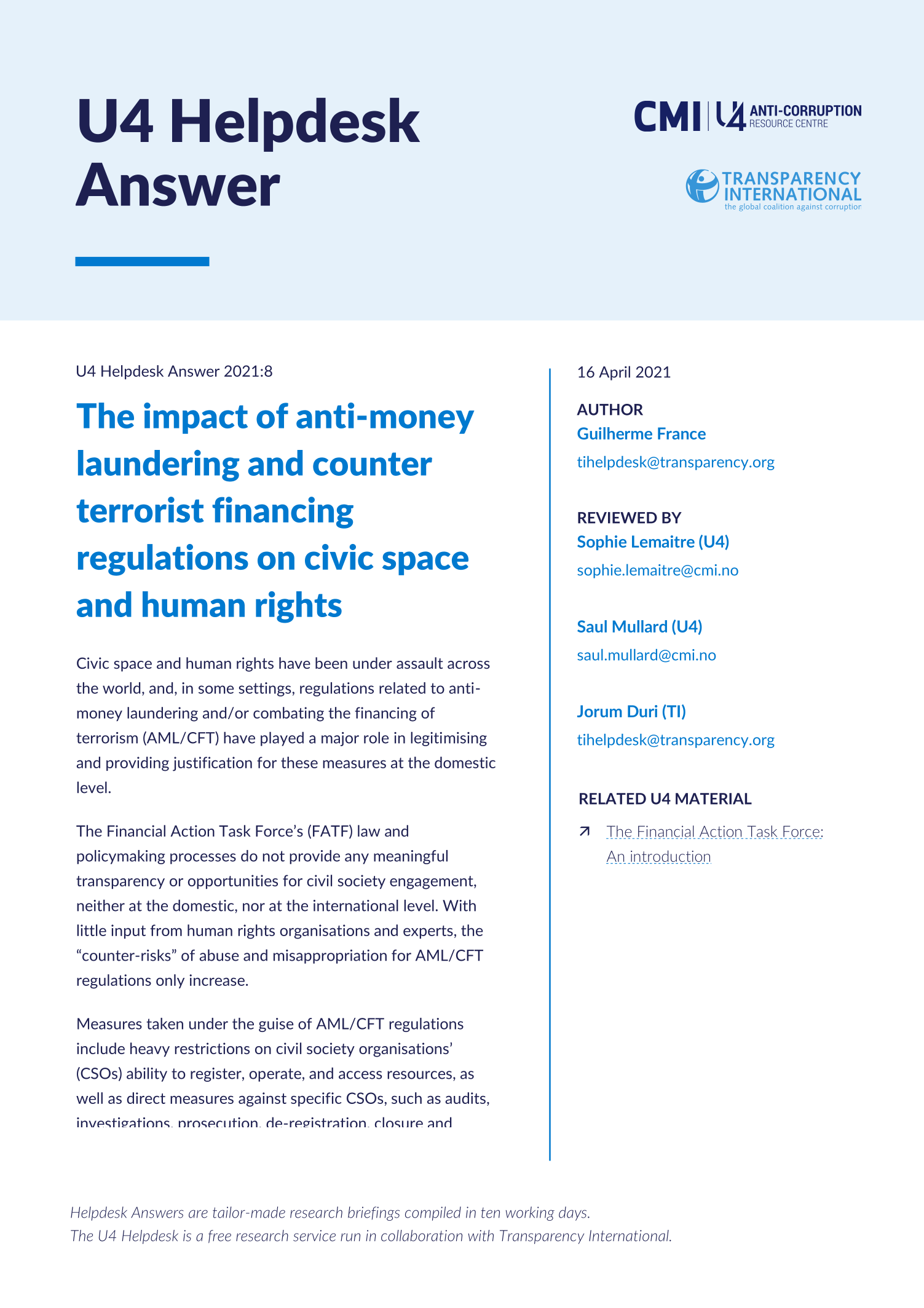Main points
- Civic space restrictions and human rights violations have only grown since 2001, and AML/CFT laws and regulations have often caused or been used to justify them.
- FATF’s law and policymaking processes are not transparent and do not allow for meaningful civil society participation, which severely limits human rights inputs.
- The negative impacts of AML/CFT regulation on civil society organisations compromise FATF’s very goal of preventing and countering terrorism and money laundering.
- Measures taken under the guise of AML/CFT regulations include heavy restrictions on CSOs’ ability to register, operate and access resources, as well as direct measures against specific CSOs, such as audits, investigations, prosecution, de-registration, closure and expulsion.
- De-risking and restrictions to foreign donations are two of the bigger issues CSOs currently face.

